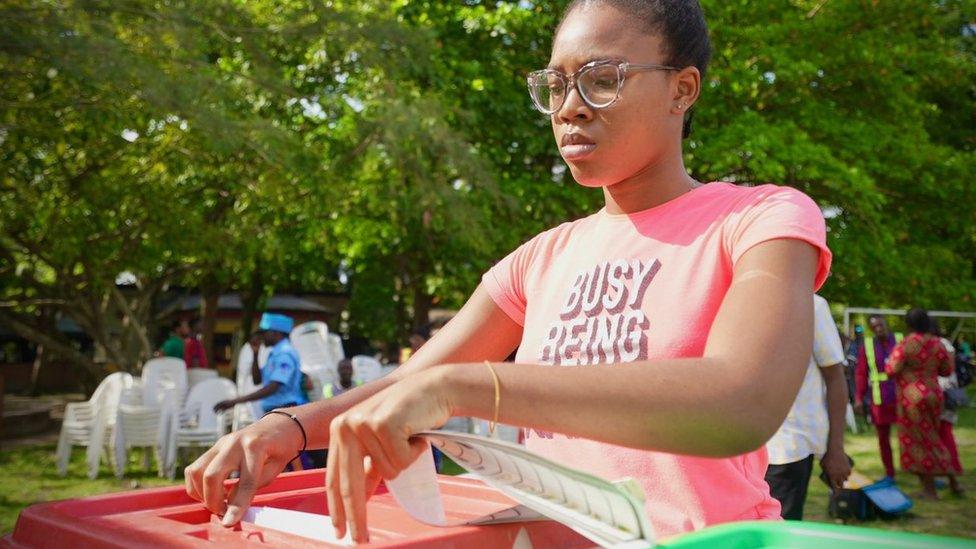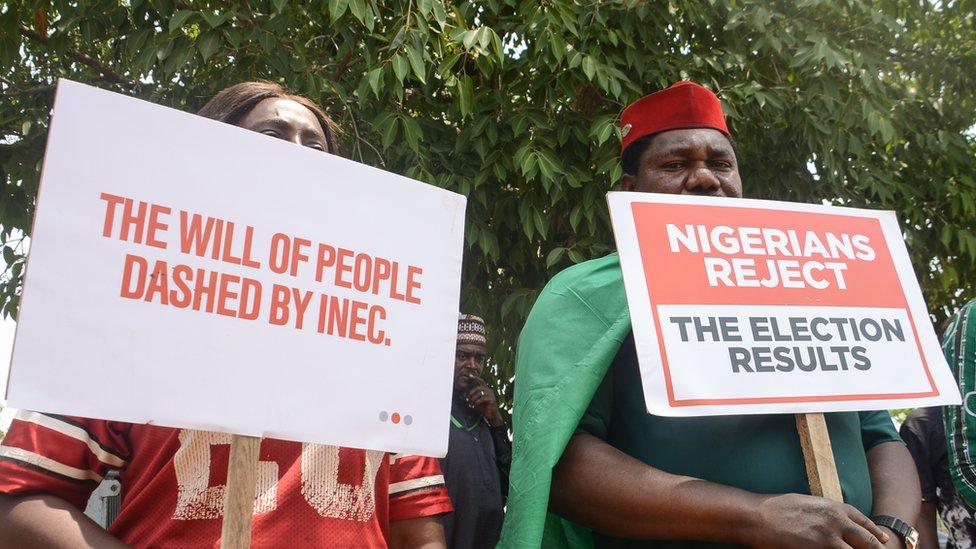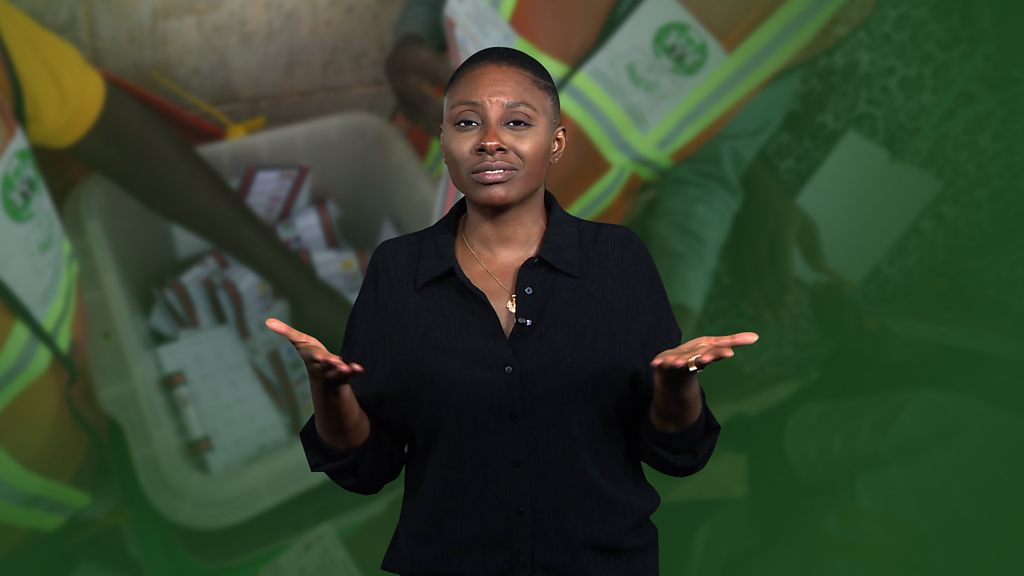Nigeria elections 2023: Counting under way in governor polls marred by violence
- Published

Some states have held elections for a second day following disruptions on Saturday
Votes are being counted in Nigeria a day after violence and delays marred the governor and states assembly elections in some parts of the country.
A few states, including Lagos, are allowing voting for a second day.
Some 800 candidates are contesting the influential governor and state assembly seats.
The poll comes three weeks after a contentious presidential election which the opposition allege was rigged in favour of the winner Bola Tinubu.
The former governor of Lagos, who was the ruling party candidate, won 37% of the vote but Atiku Abubakar and Peter Obi, the second and third-placed candidates, vowed to go to court to challenge the result.
While admitting there had been challenges running the 25 February poll, Nigeria's Independent National Electoral Commission has dismissed allegations of bias.
The two opposition candidates have until 31 March to file a petition challenging the presidential results.
Saturday's elections were conducted in 28 of Nigeria's 36 states which were not affected by electoral disputes in previous votes.
Despite the police imposing several security measures including restrictions on vehicle movements, numerous incidents were reported on Saturday in Lagos where some polling stations were attacked by gangs who also snatched ballot papers.
The highly contested elections have led to ethnic tension among supporters of the main candidates, with some sharing online how they were prevented from voting because of their identity or party affiliation.
Similar attacks and alleged discrimination were also reported in Sokoto state in the north-west, Kano in the north, and Port Harcourt in the Niger Delta.
The situation is calmer on Sunday in areas where the election was postponed to a second day.
Political parties see state elections as a way to flex their strength, as Nigeria's governors are some of the country's most powerful politicians in charge of multi-million dollar budgets.
Observers are watching to see if Mr Obi's new Labour Party, which has excited millions of young people, can pick up some seats in states dominated by the ruling APC and main opposition PDP. Focus is especially on Lagos where Mr Obi won the state.
The elections have taken place as Nigeria experiences a worsening economy and cost of living crisis.
A growing insecurity threat driven by armed groups, including bandits who kidnap for ransom, has also gripped Africa's most populous nation.
Nigeria election 2023: The gubernatorial elections explained
Related topics
- Published3 March 2023

- Published16 March 2023
